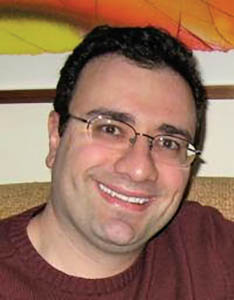
The doctor-patient relationship is an ever-changing thing. Gone are the paternalistic days of medicine. Facebook mom groups and other social media provide easily accessible resources and opinions. Medicine has become a more customer-oriented experience. Urgent-care centers continue to pop up on our street corners. Convenience and efficiency sometimes hold priority by families in a time when anything can be ordered quickly online and delivered right to your door. Nevertheless, the relationship between a doctor and a patient (and family) needs to be upheld. It is a relationship that has both legal definitions and ramifications as well as emotional ties. It is a relationship of partnership and trust. As physicians, we will do our very best to help you. The relationship is based on you trusting our training and experience as well as on you willing to let us help guide you in your time of need.
I spend a lot of time providing reassurance and reinforcement in pediatrics. I try to let families know my thought processes when reaching a diagnosis and discuss possible treatment options (if available) rather than simply handing them a prescription and moving on to the next encounter. Reassuring a concerned parent and letting them know what they can expect over the next few days is all that is needed in some visits. Patient education goes a long way in establishing trust. Most families are happy to know they can sometimes wait a few days before starting an antibiotic. Letting a family know that I am available if things do not get better is just one more way to continue to provide a trusting medical experience.
There must also, however, be trust in the process itself. Illness and medicine are a dynamic unit. Sometimes watchful waiting—allowing time for things to progress in one direction or another—is the most useful diagnostic test. This has become more difficult in our fast-paced world where photos disappear in seconds after viewing and updates on sporting events can be broadcast on a play-by-play basis. I may not always be right the first time, but there is always the opportunity to continue to figure it out.
I must also trust that you are giving me the most accurate information that I need to help me make a proper medical decision. I must trust that you will carry out your part as well—taking your medicine on time, watching for worsening symptoms and even just doing the basics like exercising and brushing your teeth.
Am I perfect in making every patient encounter a five-star experience? Unfortunately, I am not. It is not easy to develop in just a few minutes a trusting relationship with someone I may have never met before. The conclusion I reach during the visit may not be the one a parent or child is expecting or willing to hear. I may have to be pulled out of a visit due to an emergently sick child in the office or to talk to a hospitalist. How do I accommodate the sick visit who showed up 30 minutes late when I already have patients scheduled for the next two hours? How can I address the child’s abdominal pain, which she has had for the last six months, when she was only scheduled to see me for a sore throat? Time management is a powerful element in our relationship.
It is not always a bad thing to be a patient myself—whether it is at my dentist or for my own check-up. The doctor as the patient is always an eye-opening experience. I get to hone my craft and discover what I can do better when I see things from the other side. It becomes my responsibility as a physician not just to treat patients, but to put myself in their shoes as well. How would I want to be treated or spoken to if I were the one on the examining table and not the one doing the examining? What if I were the father and not the doctor in this encounter? Am I being put at ease and made to feel comfortable? Are my worries being addressed and my concerns being put into consideration? Oftentimes, I have to remind myself that what may seem to me like an easy diagnosis or a relatively mild ailment may have kept a parent up all night, worrying about their child. Was my check-up late because they did not leave the house on time or was it because a parent or grandparent has been ill or an emergency at their work prevented them from keeping their appointment? Life sometimes just gets in the way of our plans and causes us to readjust our priorities. Developing an understanding of this fact goes a long way.
This multifaceted dynamic of doctor and patient is ever-changing and ever-complex. It makes me a better physician and creates stronger bonds with the families I get to connect with and provide care for—and that is a healthy relationship for us all.
By Dr. Joshua Menasha
Dr. Joshua Menasha is an attending physician at Englewood Hospital and Medical Center, Hackensack University Medical Center and The Valley Hospital. He is board certified in both pediatrics and human genetics. Dr. Menasha worked as a pediatrician for several years in Bergen County prior to joining Tenafly Pediatrics in 2012.










